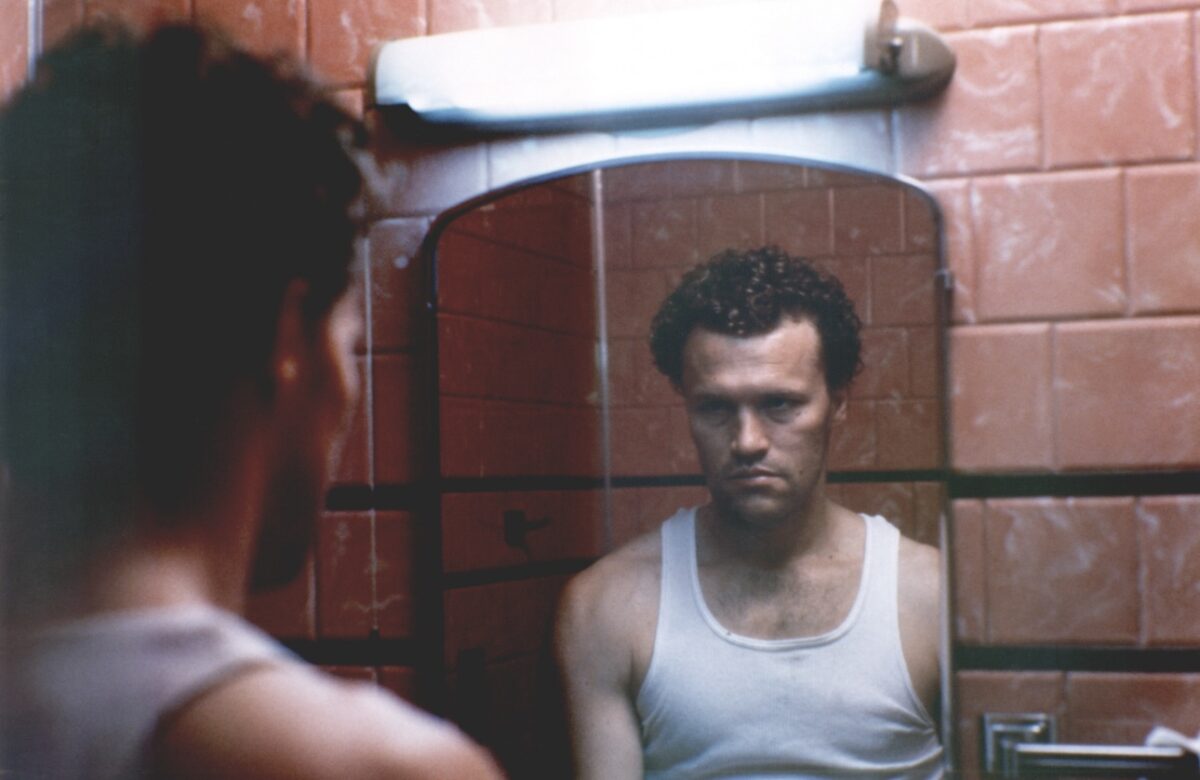
1- Patrick and Karin (Speak No Evil, 2022)
A harmless weekend turns deadly when a Danish couple, Bjørn (Morten Burian) and Louise (Sidsel Siem Koch) and their daughter Agnes (Liva Forsberg) meet up with Patrick (Fedja van Huêt), Karin (Karina Smulders) and Abel (Marius Damslev), a family they met on holiday.
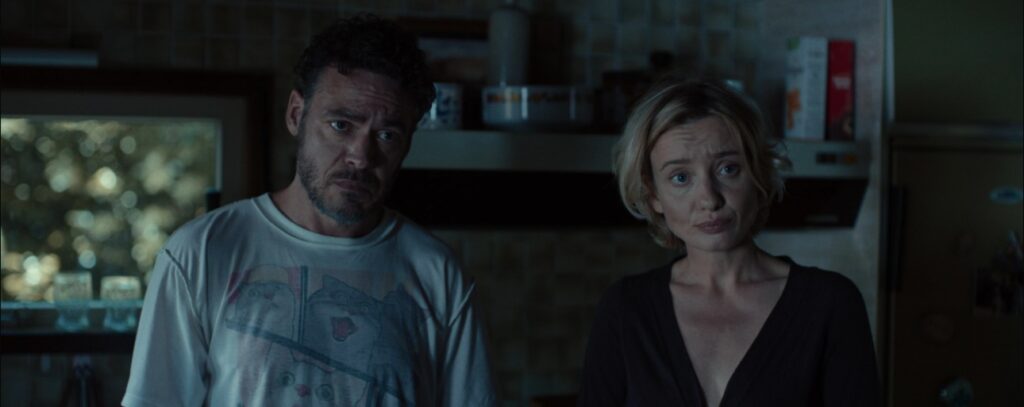
Yelling at the screen and simmering in frustration are common occurrences whilst watching Speak No Evil. But it is this exact vexation that the film thrives in as we are forced to watch deliberate, misinformed choices taking place, all for the characters to fall victim to one of modern horror’s most irrefutably evil couples. Patrick and Karin maliciously play this running game of ‘coincidences’ to play off their subtle, cruel jibes, disorientating the innocent family and forcing them to fall into the true horrific pits of their sinister intentions. Patrick and Karin employ a cold callousness that teases the viewer throughout, where we find ourselves constantly second-guessing whether the pair are building up to an act of violence or whether we are just being paranoid.
2- Henry (Henry: Portrait of a Serial Killer, 1986)
Following his release from prison, Henry (Michael Rooker) carries on his murderous antics as he goes on a wild and vicious killing spree.
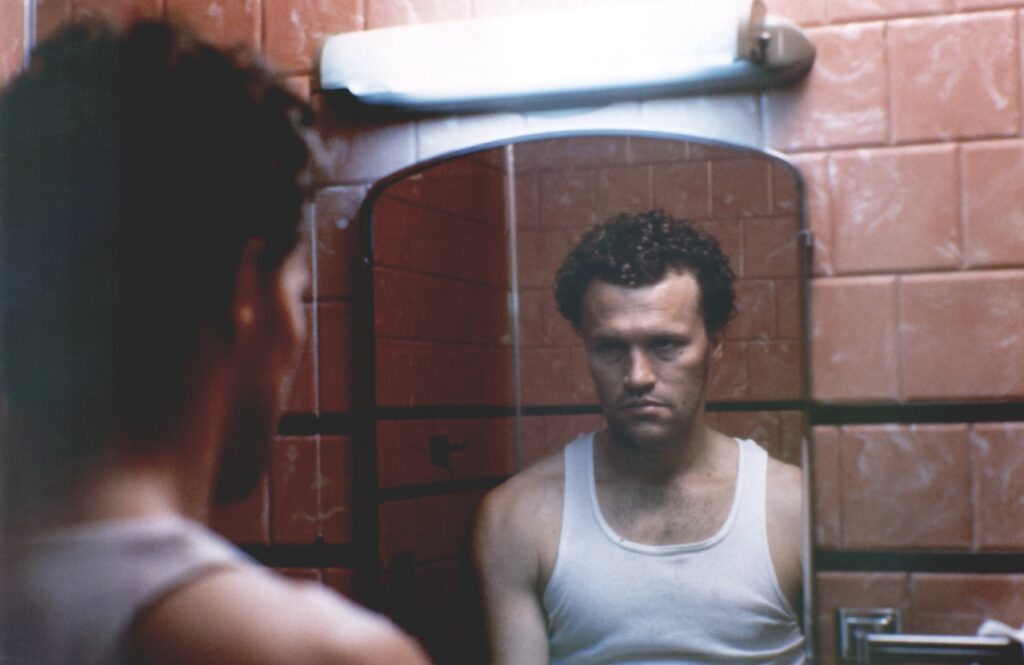
The contentious reputation of Henry: Portrait of a Serial Killer is an ode to the pure brutality of the titular character’s actions throughout the film. Acts of depravity from murder, torture and assault all take centre stage throughout the brutish movie; however, whilst these homages to brutalism are entirely shocking, what makes the film so powerful and significant is the nonchalant carelessness that Henry displays. There is no regard given to his devastations, not a thought behind his eyes whilst dicing his way through victims and most importantly, there is no stopping him whatsoever. Henry states that he just moves on from state to state, killing with no particular modus operandi, implying that his limits are unfounded and that he will never be caught.
3- La Tenia (Irréversible, 2002)
Told in reverse order, Irréversible follows the acts of revenge two men commit after the torture and attack of the woman they love.
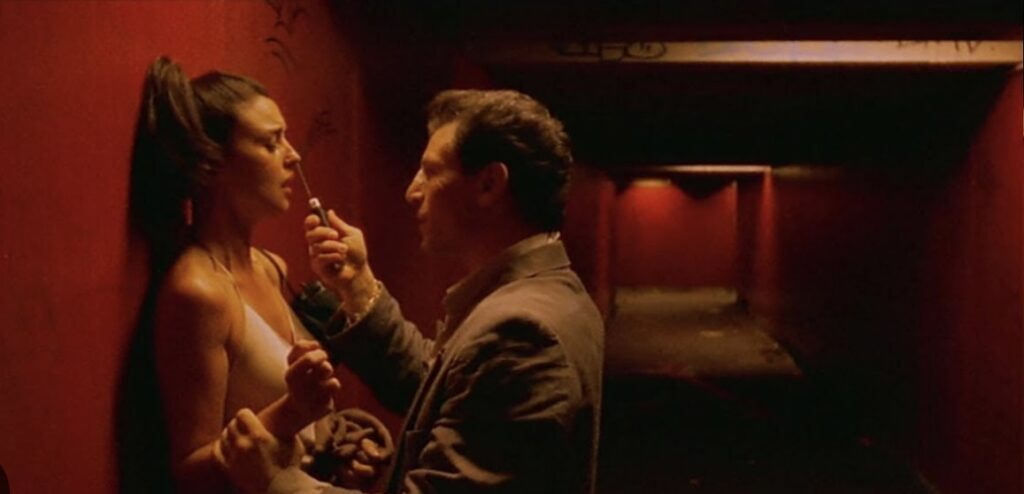
It would be hard to come by a spectator who was not left feeling emotionally torn after watching Irréversible. The film has become known as one of the more severe mainstream depictions of graphic violence, with the focus of terror being the infamous ‘tunnel scene’ showcasing an abhorrent pimp known as La Tenia (Jo Prestia) pinning down and sodomising Alex (Monica Bellucci), a young woman who was innocently walking past him, minding her own business. Emotions from fury to sickness and then back to anger all flood through us as we see La Tenia spew venomous sentiments at Alex whilst she is laid cold and battered on a dirty Parisian underpass. The camera statically lingers for a dreaded nine whole minutes as La Tenia exercises sheer immorality. Many movie villains are praised and held up as deviant icons within film; however, La Tenia is far from praise, becoming one of cinema’s most abominable monsters ever.
4- Patrick Bateman (American Psycho, 2000)
Patrick Bateman (Christian Bale) is a successful investment banker by day and a murderous psychopath by night whose grip on reality loosens as his habits become increasingly violent.
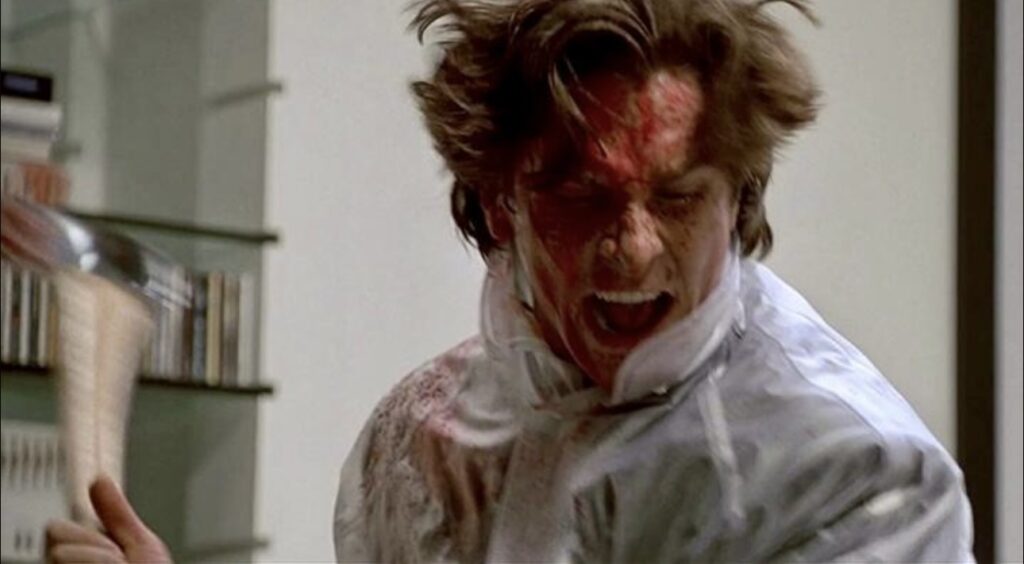
Patrick Bateman is the personification of arrogance. He views people not as humans but as toys in a treasure chest for him to do whatever he pleases with, whether that be to ridicule their class status or to savagely murder and dismember them. Whichever method of evisceration Bateman chooses, he will do it with a unique poise that ensures he is the most powerful and controlling person in the room. It is this assuredness that makes him overwhelmingly intimidating. Remaining both calm and manic, ruthless and serene, is a quality that makes Bateman stand out amongst the rest.
5- Troubled youth (Eden Lake, 2008)
Jenny (Kelly Reilly) and Steve’s (Michael Fassbender) romantic weekend away is cut short when they cross paths with an enraged group of local teens.
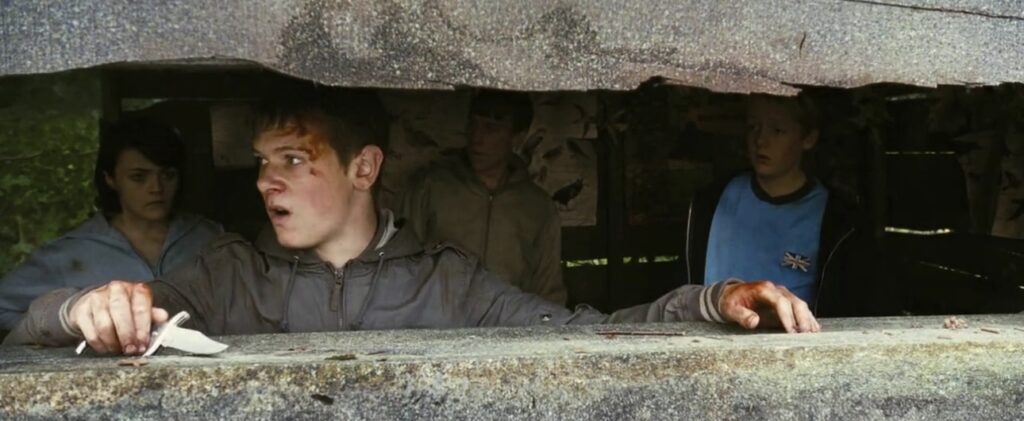
Eden Lake’s state of antagonism is wrapped up with the idea of generational horror. Although the force of horror mainly comes from the terror enforced by the teenagers, the film reveals that the gang’s thirst for trauma is rooted deep within their habitat. Eden Lake concludes with Jenny seeking rescue in a seemingly warming, normal family home, however, it is revealed that the house is occupied by the relatives of the gang she barely escaped from. The manner of the more mature members of the families are worse than that of the youth, exemplifying how nurtured, damaged behaviour is a terrifying cyclic practise.
6- Esther (Ophan, 2009)
A couple gets more than what they bargained for when they adopt Esther (Isabelle Fuhrman), a sweet ‘young’ orphan looking for a new family.
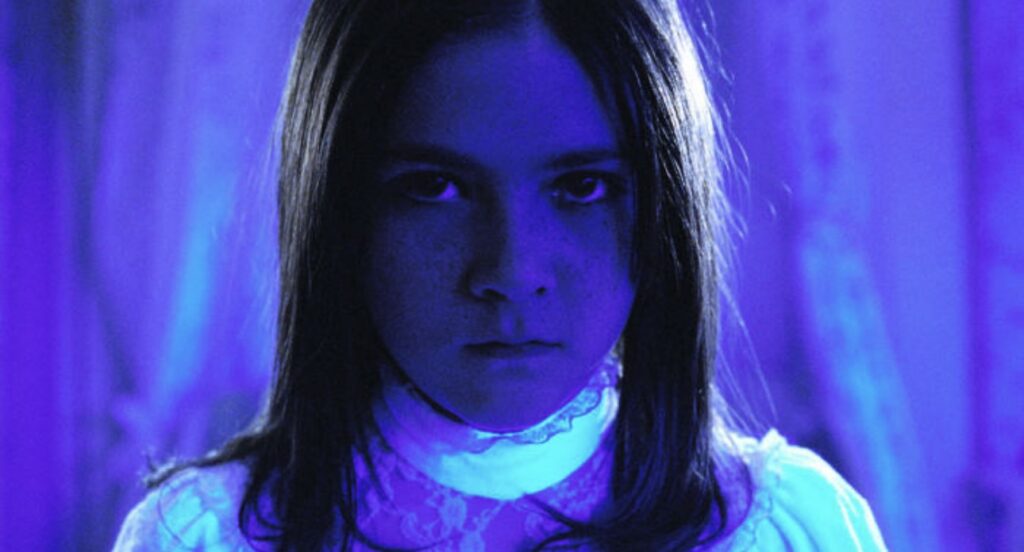
Esther has become synonymous with contemporary horror villainy, with her flawless infiltration system being savagely creative and cruel. As it happens, Esther is not a child but a woman in her thirties with an appetite for destruction. Her caring demeanour and her tragic orphaned backstory make the people in her life fall into her trap, only to ensnare them viscerally. Esther’s story is one that is scarily plausible and unique within the genre, making for a gnarly, fearful watch.
7- Kyung-chul (I Saw the Devil, 2010)
A cat and mouse game ensues after Soo-hyeon’s (Lee Byung-hun) wife and unborn child are found dead at the hands of serial killer, Kyung-chul (Choi Min-sik).
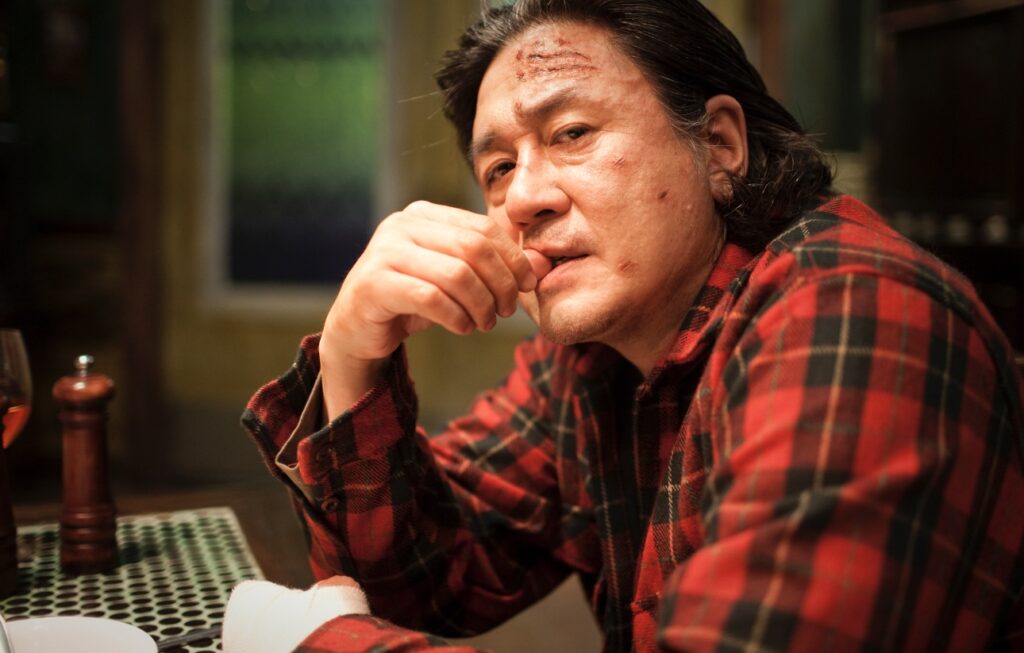
The antagonism exercised by the character Kyung-chul is utterly barbaric and reprehensible. Nothing, no one and no act is off limits for this despicable man. The film depicts each killing with such ferocity that it is nearly impossible not to feel some form of hatred for his character. Accompanying Kyung-chul’s beastliness is the film’s melancholy tones, a quintessential facet of South Korea’s fantastic filmmaking style, with each scene juxtaposing Kyung-chul’s inhuman actions with the audience’s evidential empathy towards his victims.
8- The Poughkeepsie killer (The Poughkeepsie Tapes, 2007)
A serial killer’s life’s work is unleashed as New York detectives find thousands of home videos depicting countless acts of murder, dismemberment and torture.
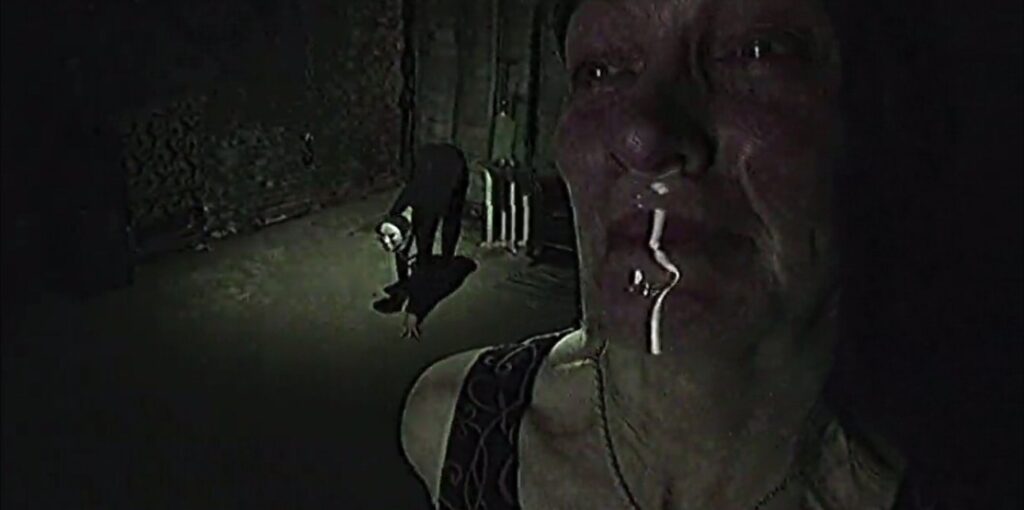
Although relatively infamous amongst many found footage fans, The Poughkeepsie Tape’s central antagonist (whose identity is never revealed) is rarely discussed regarding their atrocity. The film discloses that their victim count reaches far into the hundreds. Each tape screened revels in the killer’s gratuitous displays of punishment and abuse, with the perpetrator additionally employing disturbing fetishism throughout his inflictions of pain.
9- Mum and Dad (Mum & Dad, 2008)
Lone airport worker Lena (Olga Fedori) is held hostage by a sick and twisted family.
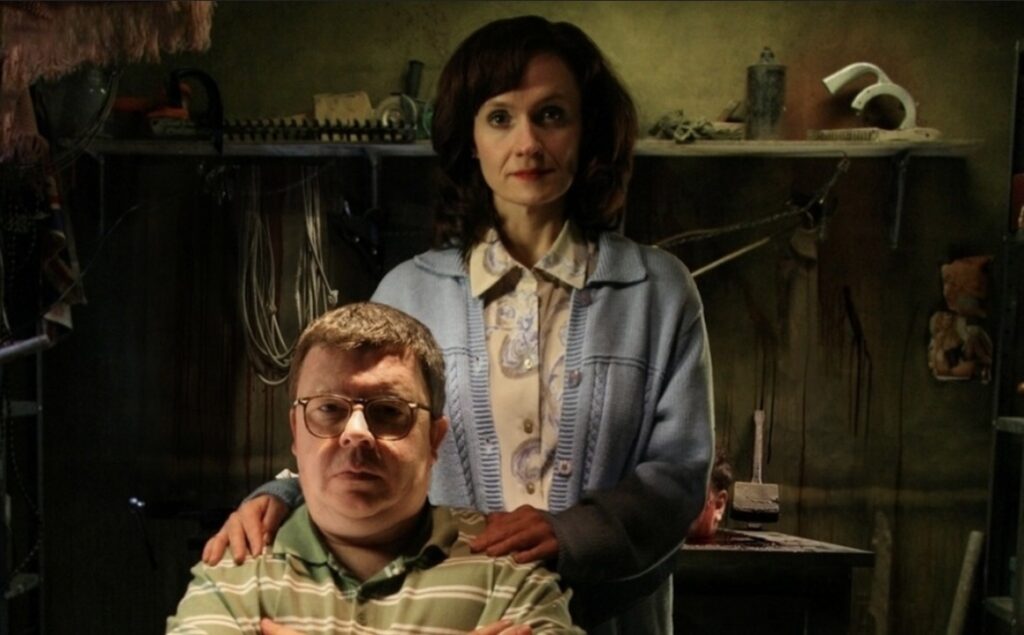
Head of the sadistic family are Mum (Dido Miles) and Dad (Perry Benson), who encompass the epitome of all things grotesque and macabre. Their incestuous attitudes and gleeful will to traumatise leave for an incredibly uncomfortable watch as we see the pair exude delight whilst tormenting the innocent. Adding to the pair’s awfully horrid actions is the film’s bleak and dreary flair that embodies a sense of misanthropic unease, forcing the viewer to wallow away within all of its overarching angst.
10- Chris Cleek (The Woman, 2011)
Whilst out hunting, Chris Cleek (Sean Bridgers) captures an uncivilised woman and brings her to his family home, keeping her tied up in an old out-shack for him to keep as a trophy, doing what he pleases.
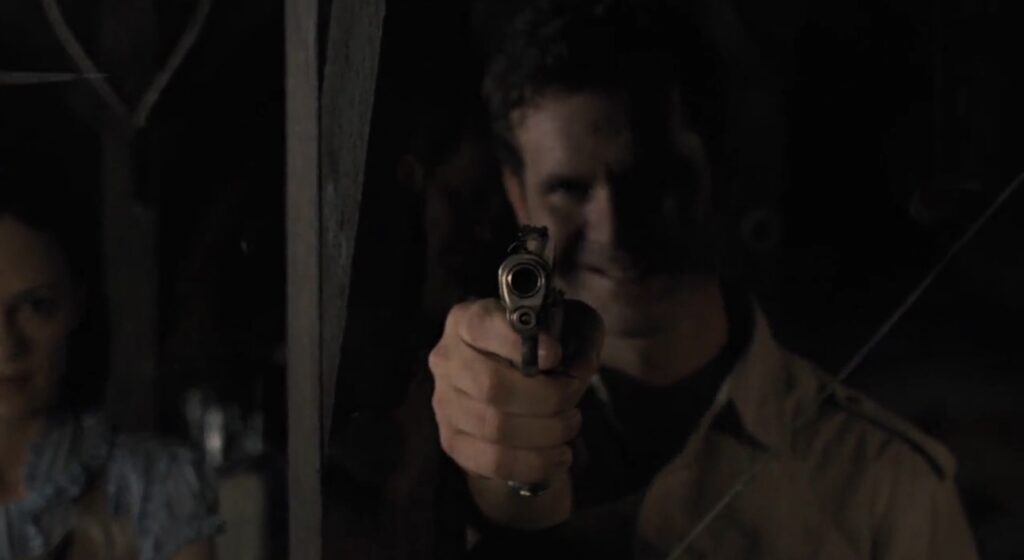
Immediately there is a strong sense of banality seeping through Chris’s motives and actions, but what is the real nail in the coffin is how his actions are mimicked by those around him. He nurtures his teenage son to also treat the woman as an object for his desire, with the father son duo feeding from each other’s willingness to harm. Master manipulation and evil toxicity truly is the bread and butter of supposed ‘family-man’ Chris Cleek’s persona.
Want more top horror lists and reviews? Check out our blog here..

